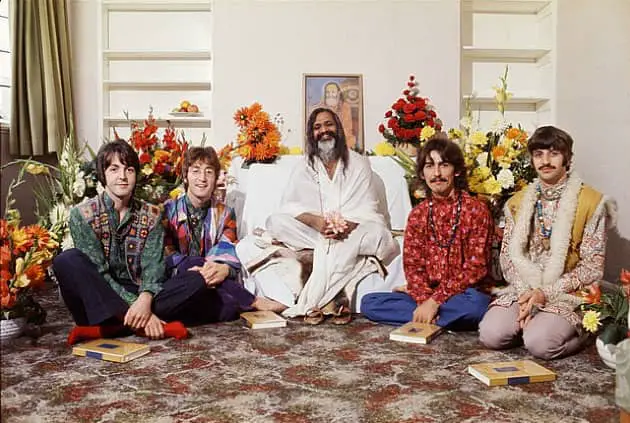The 1970s and 1980s: The Personal Development Boom
The 1970s and 1980s saw an explosion of interest in personal development and self-help, with the industry beginning to take on many of the characteristics we associate with it today.
EST (Erhard Seminars Training), founded by Werner Erhard in 1971, became a cultural phenomenon with its intensive personal transformation seminars. While controversial, EST’s confrontational style and focus on taking radical responsibility for one’s life influenced many future personal development programs.
Transcendental Meditation, popularised in the West by Maharishi Mahesh Yogi, brought Eastern meditative practices to a mainstream audience. This paved the way for mindfulness and other contemplative practices to become staples of the personal development world.
The 1970s also saw the emergence of Neuro-Linguistic Programming (NLP), developed by Richard Bandler and John Grinder. NLP’s emphasis on modelling successful behaviours and using language patterns to influence oneself and others would have a major impact on future personal development and coaching methodologies.
In the realm of literature, M. Scott Peck’s 1978 book “The Road Less Traveled” became a massive bestseller, blending psychological and spiritual insights in a way that resonated deeply with readers seeking personal growth.
This period also saw the rise of several key figures who would go on to shape the personal development landscape for decades:
Jim Rohn
Jim Rohn emerged as a major motivational speaker and personal development philosopher in the 1970s. His emphasis on personal responsibility, goal-setting, and continuous self-education struck a chord with audiences. Rohn’s famous quote “You are the average of the five people you spend the most time with” encapsulates his philosophy of surrounding oneself with positive influences.
Rohn’s teachings on success principles, attitude, and personal growth influenced countless future personal development leaders. He served as a mentor to many, including a young Tony Robbins, helping to shape the next generation of motivational speakers and coaches.
Rohn’s style was more understated than some of his contemporaries, but his practical wisdom and emphasis on character development left a lasting impact on the field. His focus on developing oneself as a person, not just acquiring skills or techniques, helped set a standard for holistic approaches to personal growth.
Anthony Robbins
Tony Robbins burst onto the personal development scene in the 1980s, quickly becoming one of the most recognisable faces of the industry. Blending high-energy motivational speaking with NLP techniques and other personal change methodologies, Robbins created a unique and highly influential approach.
Robbins’ emphasis on taking massive action, changing one’s state through physiology and focus, and breaking through limiting beliefs resonate strongly with audiences. His infomercials, books like “Unlimited Power” (1986) and “Awaken the Giant Within” (1991), and large-scale seminars helped bring personal development concepts to an even wider mainstream audience.
While sometimes criticised for his intense style and bold claims, Robbins undeniably played a major role in popularising personal development practices and making them more accessible to the general public. His ability to synthesise ideas from various fields and present them in an engaging, actionable format set a new standard for motivational speaking and coaching.
Robbins’ success also demonstrated the potential for personal development as a business, with his empire expanding to include not just seminars and books, but also one-on-one coaching, business consulting, and various other products and services.





